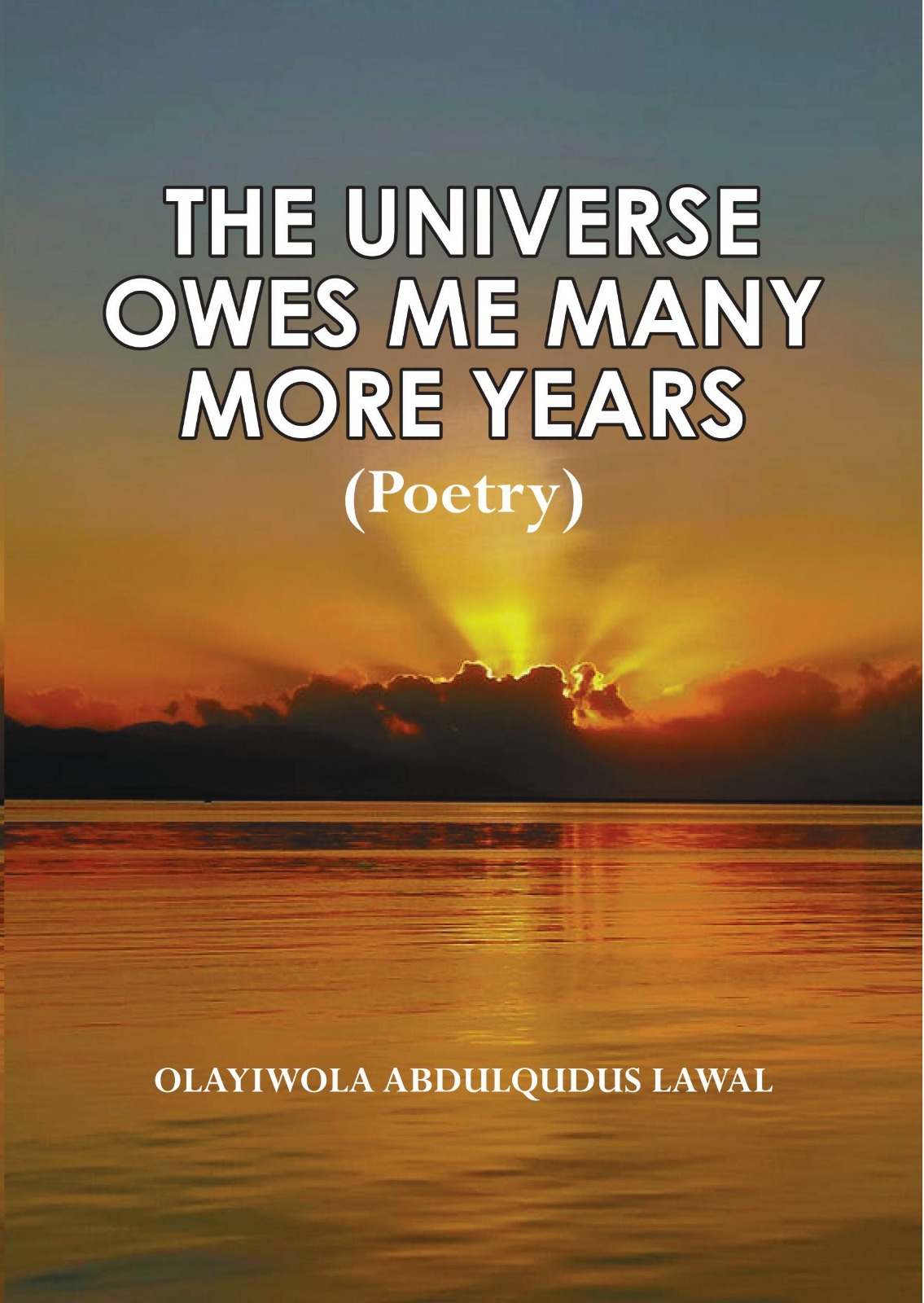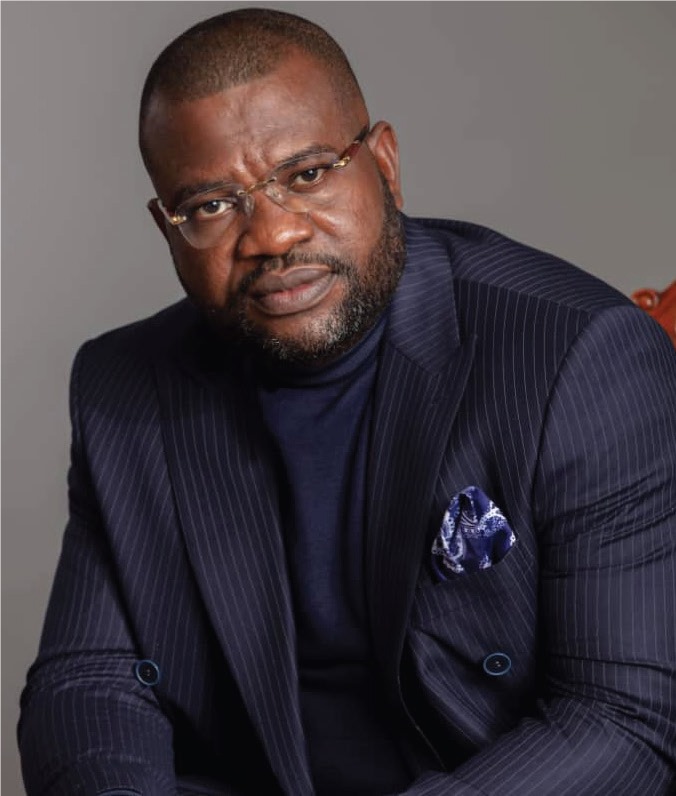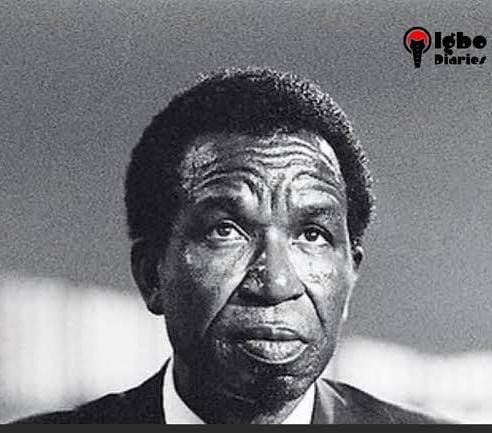Words that Be and Mean: A Review of Lawal’s ‘The Universe Owes Me Many More Years’

By Ademola Adesola
IN a recent readably engaging interview he grants Gbenro Adesina of Primestar News, the scholar-poet of matchless example, Niyi Osundare, gives voice again to his view on the notion of “art for art’s sake” in regard to African literature (https://www.primestarnews.com/video-nigeria-is-not-poor-but-badly-misgoverned-prof-niyi-osundare/). In responding to this stubborn, age-long notion favored by some literary critics, Osundare submits insightfully that it is impossible for a work of art, more specifically, a poem to “be” without “meaning.” Osundare abjures the reasoning that the main function of poetry is to “be” and not to “mean,” indeed that art is inherently self-sufficient. As a masterly practitioner of the craft of poetry and one of the inheritors of a literary tradition formed in the crucible of colonialism, Osundare surely understands the meaninglessness and unwholesomeness of poems whose beings are mainly hallmarked by rhyme without reason and sound without substance. In his book of poetry published in 1986, A Nib in the Pond, Osundare laughs at, derides, and assails the postulate, “art for art’s sake,” as “Art for Ass Sake.” I invite you to contemplate the word “ass” in all imaginary way possible.
The question might then be asked: What is the connection between this Osundare postulation and Olayiwola Lawal’s new offering, The Universe Owes Me Many More Years? I consider this question fair, and I will address it forthwith. In reading Olayiwola Lawal’s debut book of poems, I find that it is a work which boldly shuns the meaningless pit of being without meaning. The poems in The Universe Owes Me Many More Years ring evocatively meaningful in the respective subjects they center. They combine sound and sense. They are far from being discordant tunes lacking in meaning; they are – to use the words of the speaker in the poem “A call from Home” – “the soothing melody of the nightingale” that serenades, signifies, and means. These poems web together entertaining sounds and congruous words to form thoughts that are at once momentous, entertaining, provocative, celebratory, commemorative, therapeutic, didactic, and philosophical. The undulating cadences of these poems compel readerly attention and encourage thoughtful reflections. Moreover, in this collection are poems that, on the one hand re-familiarize the reader with the ever-constant realities of the Nigerian space; and on the other hand, defamiliarize the existential conundrums humans everywhere inescapably wrestle with. It is for these foregoing considerations that the poems in Lawal’s first collection speak of and speak to varied human situations. In so doing, the collection reinforces the earlier referenced Osundare conclusion that the art of significance is the one that does not sidestep our human experiences, as well as those of our non-human other.
Structurally, The Universe Owes Me Many More Years is made up of seven sections. Section One is titled “Personal Reflections,” and comprises 10 poems; Section Two is called “Owners of Thousand Dreams,” and has six poems; Section Three goes by the title “Shivers of Emotions, Lust & Complexities,” and contains 13 poems (the highest number in the collection); and Section Four takes the title “Orchestrators of Perils,” and has eight poems. The trio of sections five to seven are variously titled “Swamp of ‘Yoruba Demons’ Tales” (seven poems); “Village Voices” (six poems, reminiscent of Osundare’s 1984 second book of poems); and “Tributes” (eight poems). Taken together, the collection hosts 58 poems of varying lengths, styles, subjects, tones, and moods. Although each of the seven sections has a distinct title, the boundaries of their respective subjects are not rigidly constituted. For example, some of the poems in sections three and five thematize, among others, sexual love, and commercialized and perverted sex. The themes of irresponsible governance and necropolitics (following Achille Mbembe’s theorization of the concept as the politics of death) and their life-decimating consequences crisscross both sections one and four.

The themes in the collection are in certain respects dissimilar, interconnected, and wide-ranging. They include inexplicable joy of love and loving, the comfort of healthy friendships, the unfathomable vagaries of life, advocacy for a respectful relationship with the earth, the punishing scourge of visionless and clueless political rulership, and genuine appreciation of people and their stellar accomplishments. I do not think that the themes of reflection and appreciation observable in the first and last sections of the collection are coincidental. To my mind, when considered together, they make the point that only a mind given to reflection can appreciate the worth and grace of other people. It is in this regard that the didactic quality of Lawal’s collection becomes more evident. Additionally, the audacious declaration in the title of the collection (The Universe Owes Me Many More Years) can be read as the poet’s other way of encouraging positivity and positive thinking. As the poet-persona in the first poem bearing the title of the collection suggests, positive declarations – even if prayerful – are useful medicine for the mind. As the speaker goes about their everyday affairs, they remain positive and jolly, and supplicate thus:
Death shall not wander across my path / Sickness shall not dump worries in my heart / May I wallow in the sea of greatness / My utterances shall beam with eloquence (2)
The melody in the couplet rhyme scheme that characterizes the four stanzas of the poem reinforces this conclusion. While the speaker does not live problem-free, they remain upbeat and joyous. The same musical quality is present in the poem “Plight of an African Son,” in which the speaker’s personal paradoxical circumstances and the avoidable hardships that typify the African continent do not completely evaporate the speaker’s ability to live reasonably joyfully. The song quality of the couplet rhyme scheme is also evident in the poems “The World: A Stage” and “At Twenty and Two.” Lawal’s carefully wrought couplet rhyme scheme in some of his poems attunes the mind to the heroic couplet rhyme scheme that characterizes the poems of Alexander Pope, one of the most prominent English poets and satirists of the eighteenth century. Through this scheme, Pope satirically centers the juxtaposition of the ludicrous and the serious. Lawal too deploys the couplet rhyme scheme in service of the subjects of his poems.
In contrast, this title is not devoid of the worrisome irony and paradox that define life. Even when the universe teaches and proves time again that it owes us nothing, human still persists in thinking it does. This unbridled entitlement mentality is responsible for humans’ incessant plundering of Nature’s bounteous resources. Nonetheless, in making the two points about the title of the collection, I am calling attention to what some of us know too well about well-realized literary works – this being that they resist one-sided interpretation. Lawal’s collection is not unlike such works; the words that make up the poems resist a unilateral, absolute understanding. And complete as each of the poems appear; their subject matters defy interpretive closure. Herein lies one of the remarkable strengths of the collection.
One other vital point about Lawal’s The Universe Owes Me Many More Years is that its varied themes are ably supported by different poetic devices. In other words, in appropriating divers lyrical devices to realize the core concerns of the poems, Lawal positions himself as an emerging but capable twenty-first-century poet to be taken seriously (Prof. Gbemisola Adeoti in his ‘Foreword’ commentary on the collection praises Lawal for what he [Adeoti] observes as the poet’s demonstration of the “appreciable mastery of the craft of poetry, not common in first efforts”. Lawal makes words sing and mean. The felicitous symphony of the resources of sound – such as rhyme, rhythm, alliteration, assonance, onomatopoeia, and pun – creates in the collection an inviting and organized sonic universe that makes auditory imageries appreciable, and in that sense eventuates in what the poet-persona in the poem “Woman of my Dreams” describes as “melodious tunes to my ears”. These lyrical resources add value to Lawal’s collection of poems, for as Osundare reasons in a 2022 published lecture, Poetry and the Human Voice, “no good poetry can do without music any more felicitously than honey can do without its sweetness”. The music that words in Lawal’s poems produce steadily project their subject matters. Other poetic/literary ingredients that make Lawal’s collection be and mean include metaphor, imagery (appealing to various senses such as visual, tactile, gustatory, etc.), rhetorical question, enjambment, personification, contrast, paradox, repetition, and anaphora.
In all, Lawal’s The Universe Owes Me Many More Years is a worthy addition to new Nigerian verse, indeed new African poetry. Lawal has produced a work that speaks and means. In it is evident the averment of X. J. Kennedy and Dana Gioia that “poetry is a special way of speaking that requires a special way of listening”. What Lawal’s collection speaks in (un)familiar senses calls for careful and special attention from minders of new poetry. And as Osundare submits, “Every poem has an audience […] Even where the poet is not so sure, the poem has a way of finding or inventing its own listeners”. May Lawal’s The Universe Owes Me Many More Years finds its audience – be they those reading for pleasure or those with the cultivated capacity to comb through poems with a fine toothcomb of critical mindedness.
Works Cited
Adesina, Gbenro. “Nigeria Is Not Poor, But Badly Misgoverned – Prof. Niyi Osundare.” Primestar, September 15, 2025, https://www.primestarnews.com/video-nigeria-is-not-poor-but-badly-misgoverned-prof-niyi-osundare/
Kennedy, X. J. and Dana Gioia. Literature: An Introduction to Fiction, Poetry, and Drama. 7th Edition, Longman, 1999.
Osundare, Niyi. Poetry and the Human Voice. Kraft Books Limited, 2022.
* Dr. Adesola is Assistant Professor of Postcolonial Literatures, Department of English, Languages, and Cultures, Mount Royal University, Canada




